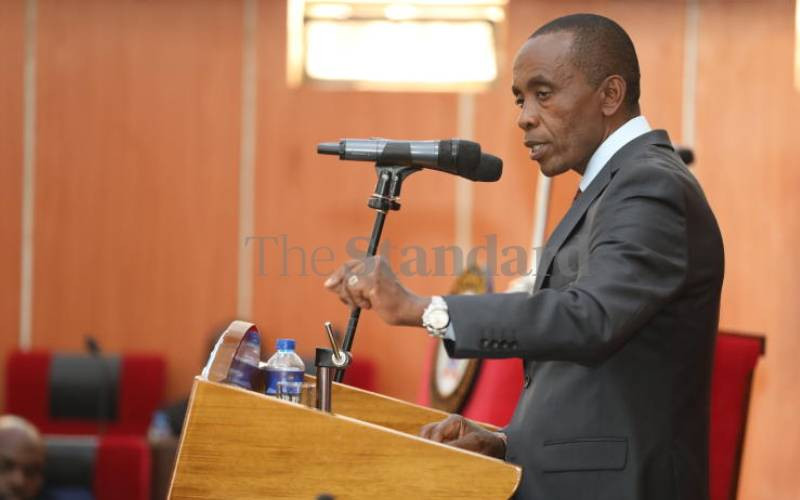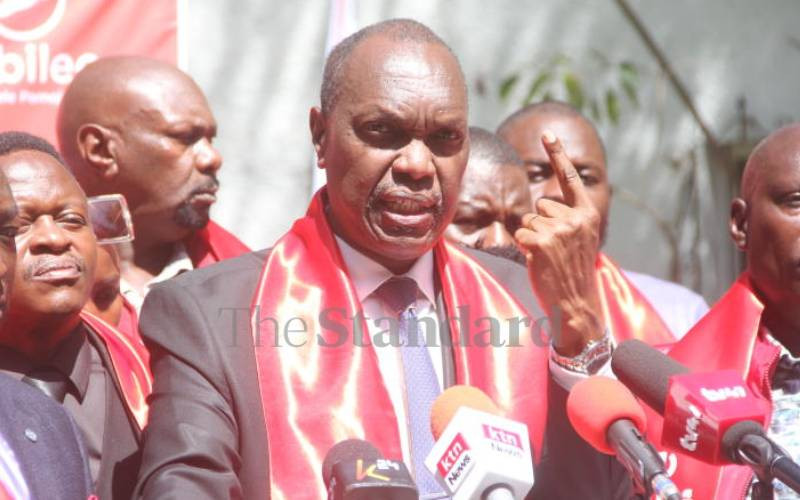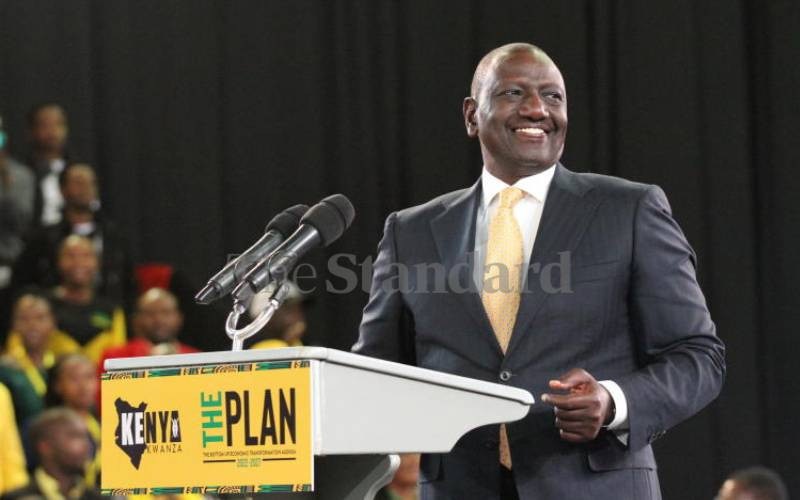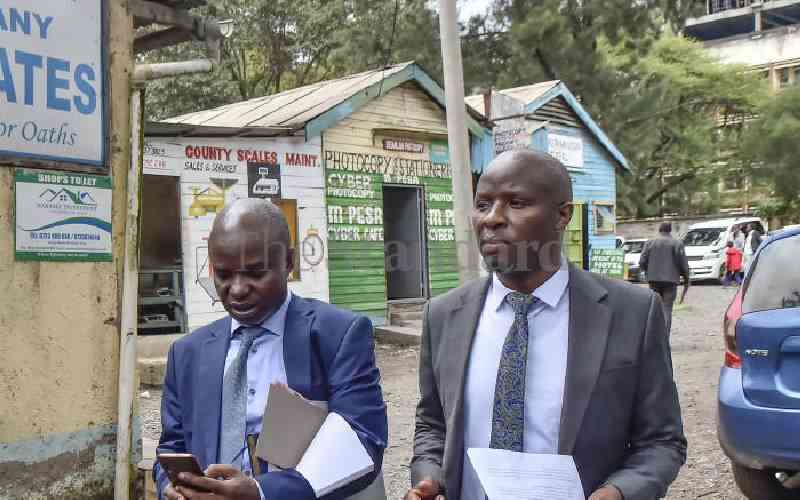
At the end of June 2017, Kenyans were served platters of empty rhetoric in fancy colourful events by the political class. The political elite called them manifestos, media disseminated it as expected and served Kenyans some more bland fare.
I call them empty rhetoric because they are political promises that seem inconsequential in the long run. The launches of these documents were held as a matter of routine. Kenya has come a long way anyway, and political parties even have manifestos.
Let’s zero in on health.
Jubilee has the misfortune of being the incumbent, and the lens at which they are scrutinised are different. As a team seeking to retain its hold on power, one of the expectations was that they provide a detailed scorecard of their achievements. The now too commonplace pronouncements about ‘our competitors have no development record’ hold no water because Jubilee is the party that has been in power, not their competitors.
Jubilee, in their document claimed to have transformed healthcare, by introducing specialised treatment closer to the people; and that they have made significant progress in providing universal healthcare.
No one has asked them whether material provision of equipment is a transformation of the health sector, or what aspect of universal healthcare they have progressed on. Let alone the fact that they oversaw a successful 100-day doctors’ strike -- a strike symptomatic of an ailing system.
They have boasted of having made ‘significant reduction in maternal and child health’. This must have been based on the free maternity programme that they introduced. No data has been presented to back this claim. We have been left to assume that free maternity is directly proportional to reduced maternal and child mortality.
Further to this, providing funds to counties and funding the free maternity was another stated achievement. The Constitution recognises two levels of Government and health is a devolved function. Therefore, the Jubilee administration had no option but to allocate funds to counties.
Free maternity was their brainchild, and they did not expect to succeed without budgetary allocation to it, did they?
They made claims to the effect that they reduced malaria deaths, and they provided no data to prove this and also failed to distinguish between donor-funded programmes that were in place way before they were elected and what they implemented or tried to.
Moving forward from this terrible look at a scorecard, lots of promises have been made from providing National Hospital Insurance Fund to those over 70 years, giving women free maternity for 12 months (what exactly is this?) to increasing the number of health facilities and setting up a specialised cancer centre in Kenya.
Grand brick and mortar promises that do not tell us the cost the taxpayer will have to shoulder for these to be realised. They did not provide timelines in which these promises will be delivered and there is no clear plan on how they intend to achieve all these.
I am particularly weary of freebies, because that is a misconception. Just because something is termed ‘free’ doesn’t mean it falls on earth from heaven. Someone has to pay for it. So, we are left to make assumptions that this document is just for wooing the electorate, considering that the media have not put them to task on how much it will cost to deliver the new promises, and how much the failures in the previous manifesto cost.
NASA’s manifesto on health steered clear of the capitalistic approach that Jubilee had and instead looked at a health issues from a socialist angle.
Stay informed. Subscribe to our newsletter
They narrowed down their promise to establishing a National Universal Health Service Fund that will be supported by the public budget. Further, health insurance contributions from the citizens will fund the sector.
What sounds like a good idea is lost in the vagueness of their statements. Will they duplicate the role of NHIF? How much it will cost is similar to Jubilee’s -- absent. This might sound like a safe health plan by NASA, but the numerous problems bedeviling the public health sector have been given a wide berth, and the Fourth Estate has not reeled them in.
Amidst a nurses’ strike, they promised to resolve the perennial industrial disputes in the sector. There is no indication of how they intend to achieve this, and whether they will treat the symptoms by offering a temporary reprieve or by digging deeper into the root cause of the problem and offering a permanent solution.
Media should have raised all these questions and others, and not leave it to the opinion pages. What the Fourth Estate did was to feed Kenyans and the world the pomp and colour of the launch, shout about a few points lifted straight from the manifestos and proceed to the all too familiar he-said-she-said type of political discourse that fills the Kenyan airwaves.
When it comes to health issues in both manifestos, journalists reduced themselves to conveyors of the events and did little to help the public understand what is in store for them.
As the candidates and their supporters traverse the country to campaign, they do not refer to the manifestos they launched and do not tell the voters how the promises will be implemented. They have not reminded the electorate about the contents of their manifestos, the primary reason for their seeking office -- and the media too, have not taken them to task.
Well, this is the season when we shall be served the empty rhetoric of inconsequential political promises as the the watchdog fails to set the agenda and provide valuable critique. It is a sad situation.
The writer is a medical doctor and the health correspondent for KTN News.
[email protected]
 The Standard Group Plc is a
multi-media organization with investments in media platforms spanning newspaper
print operations, television, radio broadcasting, digital and online services. The
Standard Group is recognized as a leading multi-media house in Kenya with a key
influence in matters of national and international interest.
The Standard Group Plc is a
multi-media organization with investments in media platforms spanning newspaper
print operations, television, radio broadcasting, digital and online services. The
Standard Group is recognized as a leading multi-media house in Kenya with a key
influence in matters of national and international interest.
 The Standard Group Plc is a
multi-media organization with investments in media platforms spanning newspaper
print operations, television, radio broadcasting, digital and online services. The
Standard Group is recognized as a leading multi-media house in Kenya with a key
influence in matters of national and international interest.
The Standard Group Plc is a
multi-media organization with investments in media platforms spanning newspaper
print operations, television, radio broadcasting, digital and online services. The
Standard Group is recognized as a leading multi-media house in Kenya with a key
influence in matters of national and international interest.








